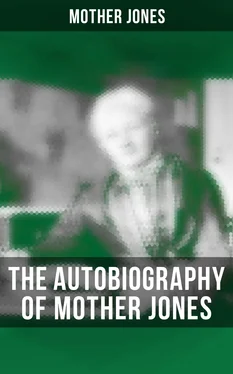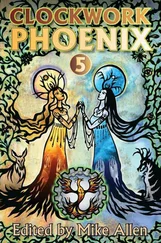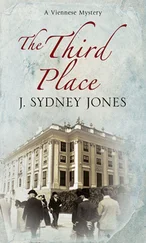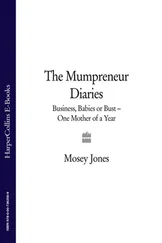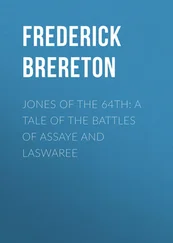As we were going along the road, I said, "Have you got a pistol on you?"
"Yes," said he, "I'm not going to let any one blow your brains out."
"My boy," said I, "it is against the law in this county to carry concealed weapons. I want you to take that pistol out and expose a couple of inches of it."
As he did so about eight or ten gunmen jumped out from behind an old barn beside the road, jumped on him and said, "Now we've got you, you dirty organizer." They bullied us along the road to the town and we were taken to an office where they had a notary public and we were tried. All those blood-thirsty murderers were there and the general manager came in.
"Mother Jones, I am astonished," said he.
"What is your astonishment about?" said I.
"That you should go into the house of God with anyone who carries a gun."
"Oh that wasn't God's house," said I. "That is the coal company's house. Don't you know that God Almighty never comes around to a place like this!"
He laughed and of course, the dogs laughed, for he was the general manager.
They dismissed any charges against me and they fined poor Dud twenty-five dollars and costs. They seemed surprised when I said I would pay it. I had the money in my petticoat.
I went over to a miner's shack and asked his wife for a cup of tea. Often in these company-owned towns the inn-keepers were afraid to let me have food. The poor soul was so happy to have me there that she excused herself to "dress for company." She came out of the bedroom with a white apron on over her cheap cotton wrapper.
One of the men who was present at Dud's trial followed me up to the miner's house. At first the miner's wife would not admit him but he said he wanted to speak privately to Mother Jones. So she let him in.
"Mother," he said, "I am glad you paid that bill so quickly. They thought you'd appeal the case. Then they were going to lock you both up and burn you in the coke ovens at night and then say that you had both been turned loose in the morning and they didn't know where you had gone."
Whether they really would have carried out their plans I do not know. But I do know that there are no limits to which powers of privilege will not go to keep the workers in slavery.
CHAPTER IV
WAYLAND'S APPEAL TO REASON
Table of Contents
In 1893, J. A. Wayland with a number of others decided to demonstrate to the workers the advantage of co-operation over competition. A group of people bought land in Tennessee and founded the Ruskin Colony. They invited me to join them.
"No," said I, "your colony will not succeed. You have to have religion to make a colony successful, and labor is not yet a religion with labor."
I visited the colony a year later. I could see in that short time disrupting elements in the colony. I was glad I had not joined the colony but had stayed out in the thick of the fight. Labor has a lot of fighting to do before it can demonstrate. Two years later Wayland left for Kansas City. He was despondent.
A group of us got together; Wayland, myself, and three men, known as the "Three P's" – Putnam, a freight agent for the Burlington Railway; Palmer, a clerk in the Post Office; Page, an advertising agent for a department store. We decided that the workers needed education. That they must have a paper devoted to their interests and stating their point of view. We urged Wayland to start such a paper. Palmer suggested the name, "Appeal to Reason."
"But we have no subscribers," said Wayland.
"I'll get them," said I. "Get out your first edition and I'll see that it has subscribers enough to pay for it."
He got out a limited first edition and with it as a sample I went to the Federal Barracks at Omaha and secured a subscription from almost every lad there. Soldiers are the sons of working people and need to know it. I went down to the City Hall and got a lot of subscriptions. In a short time I had gathered several hundred subscriptions and the paper was launched. It did a wonderful service under Wayland. Later Fred G. Warren came to Girard where the paper was published, as editorial writer. If any place in America could be called my home, his home was mine. Whenever, after a long, dangerous fight, I was weary and felt the need of rest, I went to the home of Fred Warren.
Like all other things, "The Appeal to Reason" had its youth of vigor, its later days of profound wisdom, and then it passed away. Disrupting influences, quarrels, divergent points of view, theories, finally caused it to go out of business.
CHAPTER V
VICTORY AT ARNOT
Table of Contents
Before 1899 the coal fields of Pennsylvania were not organized. Immigrants poured into the country and they worked cheap. There was always a surplus of immigrant labor, solicited in Europe by the coal companies, so as to keep wages down to barest living. Hours of work down under ground were cruelly long. Fourteen hours a day was not uncommon, thirteen, twelve. The life or limb of the miner was unprotected by any laws. Families lived in company owned shacks that were not fit for their pigs. Children died by the hundreds due to the ignorance and poverty of their parents.
Often I have helped lay out for burial the babies of the miners, and the mothers could scarce conceal their relief at the little ones' deaths. Another was already on its way, destined, if a boy, for the breakers; if a girl, for the silk mills where the other brothers and sisters already worked.
The United Mine Workers decided to organize these fields and work for human conditions for human beings. Organizers were put to work. Whenever the spirit of the men in the mines grew strong enough a strike was called.
In Arnot, Pennsylvania, a strike had been going on four or five months. The men were becoming discouraged. The coal company sent the doctors, the school teachers, the preachers and their wives to the homes of the miners to get them to sign a document that they would go back to work.
The president of the district, Mr. Wilson, and an organizer, Tom Haggerty, got despondent. The signatures were overwhelmingly in favor of returning on Monday.
Haggerty suggested that they send for me. Saturday morning they telephoned to Barnesboro, where I was organizing, for me to come at once or they would lose the strike.
"Oh Mother," Haggerty said, "Come over quick and help us! The boys are that despondent! They are going back Monday."
I told him that I was holding a meeting that night but that I would leave early Sunday morning.
I started at daybreak. At Roaring Branch, the nearest train connection with Arnot, the secretary of the Arnot Union, a young boy, William Bouncer, met me with a horse and buggy. We drove sixteen miles over rough mountain roads. It was biting cold. We got into Arnot Sunday noon and I was placed in the coal company's hotel, the only hotel in town. I made some objections but Bouncer said, "Mother, we have engaged this room for you and if it is not occupied, they will never rent us another."
Sunday afternoon I held a meeting. It was not as large a gathering as those we had later but I stirred up the poor wretches that did come.
"You've got to take the pledge," I said. "Rise and pledge to stick to your brothers and the union till the strike's won!"
The men shuffled their feet but the women rose, their babies in their arms, and pledged themselves to see that no one went to work in the morning.
"The meeting stands adjourned till ten o'clock tomorrow morning," I said." Everyone come and see that the slaves that think to go back to their masters come along with you."
I returned to my room at the hotel. I wasn't called down to supper but after the general manager of the mines and all of the other guests had gone to church, the housekeeper stole up to my room and asked me to come down and get a cup of tea.
Читать дальше
